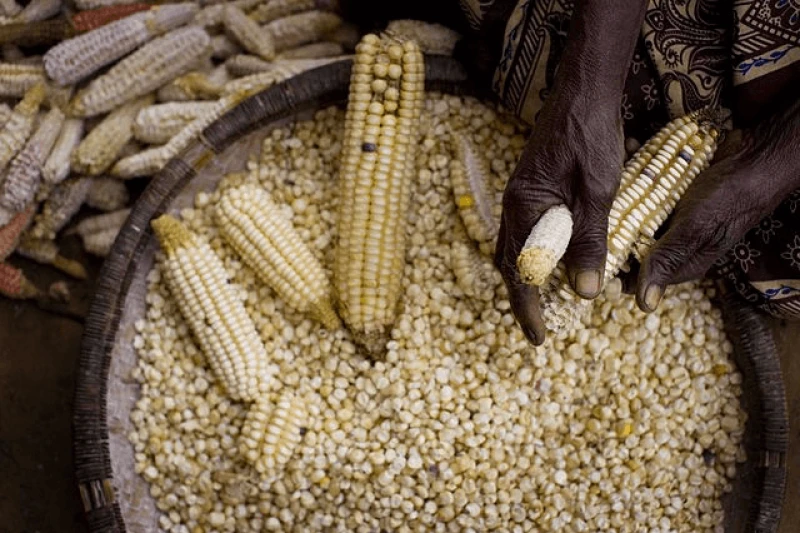Viewpoint: GM crops already solving food insecurity — 37% less pesticides, 22% higher yields, and 68% greater earnings for farmers
Viewpoint: GM crops already solving food insecurity — 37% less pesticides, 22% higher yields, and 68% greater earnings for farmers


Food insecurity and undernourishment are currently among the most serious anxieties for human health. As the world’s population goes on to increase, there is an increase in demand for food. Since the arable land is not rising, we need to find an alternative solution for food security to meet the demand of growing population which would reach about 9.9 billion by 2050. Moreover, there is the crucial need to curb crop loss due to pests that alone accounts for approximately 20–40 per cent of the total crop loss throughout the world. Conventional plant breeding can no longer be a solution to the ever-rising global food requirement.
Some benefits of genetic engineering in agriculture are increased crop yields, reduced costs for food or drug production, reduced need for pesticides, enhanced nutrient composition and food quality, resistance to pests and disease.
GM crops grown commercially in different countries are potato, squash, pumpkin, alfalfa, brinjal, sugar beet, papaya, canola, soya bean, maize, rice, straw berries, cotton and tomato.
On an average, GM technology choice has curtailed chemical pesticide use by 37 per cent, boost crop yields by 22 per cent, and increased farmer earnings by 68 per cent. Yield gains and pesticide reductions are larger for insect-resistant crops than for herbicide-tolerant crops.
This is an excerpt. Read the original post here

 | Videos | More... |

Video: Nuclear energy will destroy us? Global warming is an existential threat? Chemicals are massacring bees? Donate to the Green Industrial Complex!
 | Bees & Pollinators | More... |

GLP podcast: Science journalism is a mess. Here’s how to fix it

Mosquito massacre: Can we safely tackle malaria with a CRISPR gene drive?

Are we facing an ‘Insect Apocalypse’ caused by ‘intensive, industrial’ farming and agricultural chemicals? The media say yes; Science says ‘no’
 | Infographics | More... |

Infographic: Global regulatory and health research agencies on whether glyphosate causes cancer
 | GMO FAQs | More... |

Why is there controversy over GMO foods but not GMO drugs?

How are GMOs labeled around the world?

How does genetic engineering differ from conventional breeding?
 | GLP Profiles | More... |

Alex Jones: Right-wing conspiracy theorist stokes fear of GMOs, pesticides to sell ‘health supplements’




 Viewpoint — Fact checking MAHA mythmakers: How wellness influencers and RFK, Jr. undermine American science and health
Viewpoint — Fact checking MAHA mythmakers: How wellness influencers and RFK, Jr. undermine American science and health Viewpoint: Video — Big Solar is gobbling up productive agricultural land and hurting farmers yet providing little energy or sustainabilty gains
Viewpoint: Video — Big Solar is gobbling up productive agricultural land and hurting farmers yet providing little energy or sustainabilty gains Fighting deforestation with CO2: Biotechnology breakthrough creates sustainable palm oil alternative for cosmetics
Fighting deforestation with CO2: Biotechnology breakthrough creates sustainable palm oil alternative for cosmetics Trust issues: What happens when therapists use ChatGPT?
Trust issues: What happens when therapists use ChatGPT? 30-year-old tomato line shows genetic resistance to devastating virus
30-year-old tomato line shows genetic resistance to devastating virus California, Washington, Oregon forge immunization alliance to safeguard vaccine access against federal undermining
California, Washington, Oregon forge immunization alliance to safeguard vaccine access against federal undermining The free-range chicken dilemma: Better for birds, but with substantial costs
The free-range chicken dilemma: Better for birds, but with substantial costs ‘You have to treat the brain first’: Rethinking chronic pain with Sanjay Gupta
‘You have to treat the brain first’: Rethinking chronic pain with Sanjay Gupta
